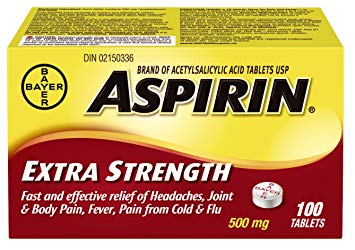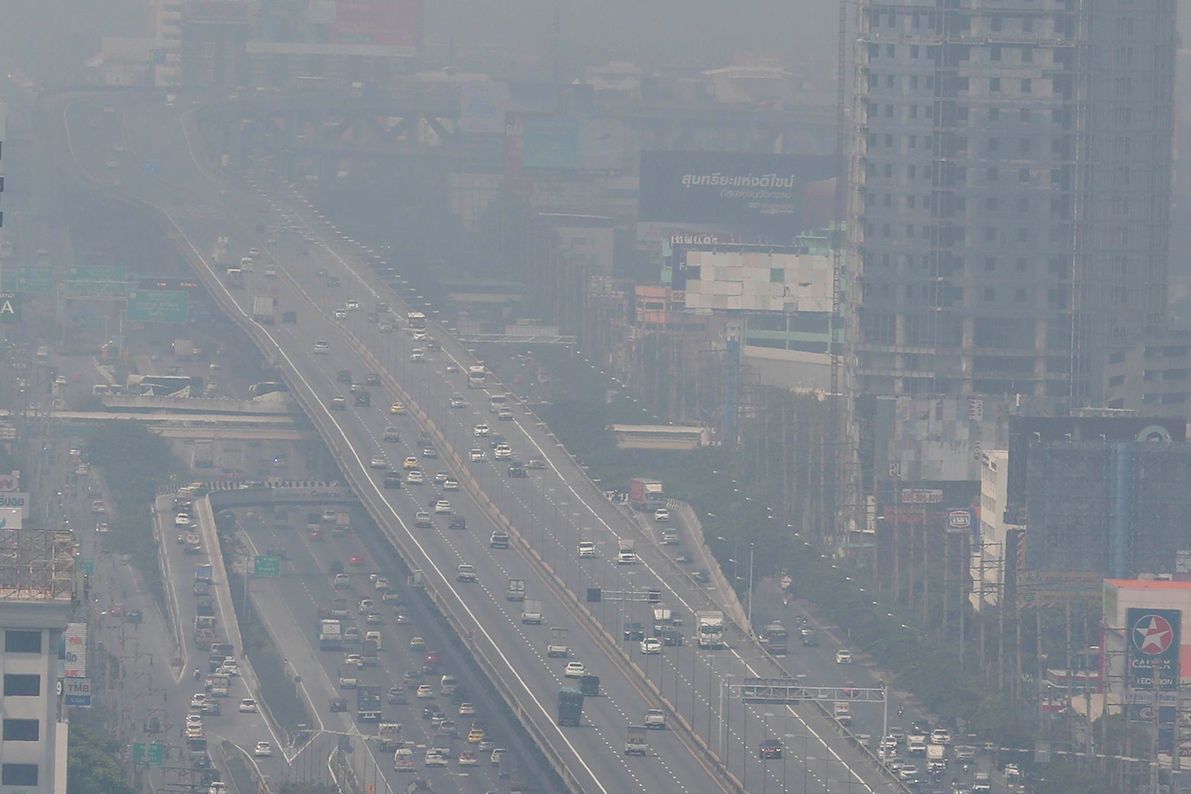Source: Thailand Medical News Oct 03, 2019 5 years, 6 months, 3 weeks, 2 days, 7 hours, 2 minutes ago
Cohort study by Harvard University, Boston University and Columbia University shows that aspirin lessens the effects of air pollution on lung function.
Considering the air pollution levels that most parts of Thailand is facing at moment due to forest fires from Indonesia which is also affecting Malaysia and Singapore as well, the latest medical findings might provide some relieve in the sense that the discovery might provide laymen with another manner to protect their wellbeing, besides using masks.
The team of medical researchers from the Columbia Mailman School of Public Health, Harvard Chan School of Public Health, Boston University School of Medicine recently published their medical findings in the
American Journal of Respiratory and Critical Care Medicine concerning the results of their joint study , which is the first to discover evidence that nonsteroidal anti-inflammatory drugs (NSAIDs) like aspirin may lessen the adverse effects of air pollution exposure on lung function.
The joint team of researchers analyzed a subset of data collected from a cohort of 2,280 male veterans from the greater Boston area who were given tests to determine their lung function. The average age of participants was 73 years. The researchers examined the relationship between test results, self-reported NSAID use, and ambient particulate matter (PM) and black carbon in the month preceding the test, while accounting for a variety of factors, including the health status of the subject and whether or not he was a smoker. They found that the use of any NSAID nearly halved of the effect of PM on lung function, with the association consistent across all four weekly air pollution measurements from same-day to 28 days prior to the lung function test.

As a result of most of the people in the study cohort who took NSAIDs used aspirin, the researchers say the modifying effect they observed was mainly from aspirin, but add that effects of non-aspirin NSAIDs are worthy of further exploration. While the mechanism is unknown, the researchers speculate that NSAIDs mitigate inflammation brought about by air pollution.
Dr Xu Gao, Ph.D., a post-doctoral research scientist in the Department of Environmental Health Sciences at the Columbia Mailman School abd first author commented in a phone interview with
Thailand Medical News."Our findings suggest that aspirin and other NSAIDs may protect the lungs from short-term spikes in air pollution. Of course, it is still important to minimize our exposure to air pollution, which is linked to a host of adverse health effects, from cancer to cardiovascular disease.”
Senior author Dr Andrea Baccarelli,Ph.D., chair of the Department of Environmental Health Sciences at the Columbia Mailman School further commented to
Thailand Medical News "While environmental policies have made considerable progress toward reducing our overall exposure to air pollution, even in places with low levels of air pollution, short-te
rm spikes are still commonplace.For this reason, it is important to identify means to minimize those harms."
An earlier study by Dr Baccarelli found that
B vitamins may also play a role in reducing the health impact of air pollution.
The public is however remined to first consult a doctor before attempting to take aspirin as certain people with underlying medical conditions can have severe medical repercussions and also in certain individuals, aspirin causes internal gut lining bleedings.
Reference:
Xu Gao et al, Nonsteroidal Anti-Inflammatory Drugs Modify the Effect of Short-Term Air Pollution on Lung Function, American Journal of Respiratory and Critical Care Medicine (2019). DOI: 10.1164/rccm.201905-1003LE 
